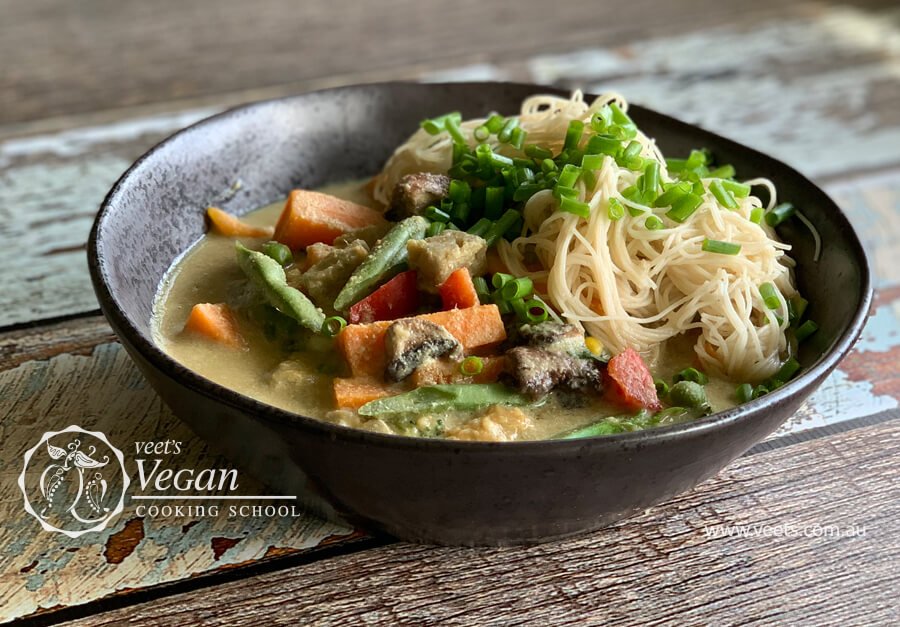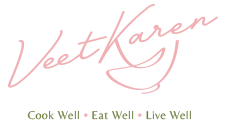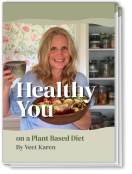
The importance of Zinc and how to get enough on a Plant Based Diet
Do you know if you are you getting enough zinc in your diet? Our bodies are dependent on the mineral zinc for body growth and development and zinc is especially important for the nervous and reproductive systems and of course the immune system. The body does not store a pool of zinc so it is essential that we have a daily intake of zinc. 1 As many are worried about borders opening up in Australia and the possibility of catching any viruses going around it is important to stay diligent with ensuring you are absorbing enough zinc each day.
Zinc absorption is complex and can be affected by too much folate, cadmium, copper, nickel, magnesium and calcium. It is also affected by how healthy you are or if you have an illness, when not at optimum health zinc tends to travel straight to the liver rather than being absorbed and used by the body.1
In a wholefoods plant based diet there is also the complication of phytates (phytic acid) in foods. While phytates are an incredible antioxidant known for warding off cancer they also can inhibit the absorption of essential minerals like zinc. Phytates in food bind to minerals in the food and can prevent absorption of those minerals (I will do a whole blog post on phytates as they are fascinating). 2
Phytates are predominantly found in whole grains, legumes and some nuts and seeds. There have been extensive studies on the processing of foods in order to remove the phytates.1, 2 What can be done in a household situation is to soak overnight all whole grains, including, wheat, rice, and the pseudo grains millet, buckwheat and quinoa as well as soaking cashews, almonds, brazil nuts, pepitas and sunflower seeds. Also soaking beans and legumes is important. I just read yesterday in 3 journal articles that soaking beans overnight in water that is heated to 65°C is optimum. Soak the beans or legumes over night and then cook in water that has been heated to 65°C again, discarding the soaking and cooking waters.
In addition fermented foods like miso, tempeh, khoji rice, tamari and soy sauce contain less phytates. Sprouting beans and rice also removes a lot of the phytates.
Even if you follow the soaking and cooking techniques I just mentioned it is also important to possibly increase your daily zinc intake if eating unprocessed grains, legumes and nuts. Phytate content in wholefoods is much greater than in refined grains for example. A study showed that in Sweden where the diet is predominantly refined grains, people were consuming 180mg phytates per day and those in places like Kenya, Mawai and Mexico where the diet is predominantly whole grains the people were consuming between 1-2 g of phytates. 2
It is safe to say on a whole food plant based diet we would be consuming between 1-2 grams of phytates a day. Both the World Health Organisation (WHO) and European Food Safety Authority (EFSA) decided on an amount of zinc that people on a plant based diet or a diet high in phytates should be consuming daily. The below table shows the zinc amount that the Australian National Reference Values (NRV) suggest as well as the WHO/EFSA recommend.
I suggest ensuring your zinc intake is based on the WHO/EFSA and you follow the soaking and cooking methods for grains, beans and legumes and nuts mentioned above.
**Note if you have found out you are low in zinc through a blood test then it may be good to take a supplement but be sure to take it at night as it can make you feel nauseous. I also suggest that taking supplements is only a quick fix measure to boost your zinc and not an ongoing thing as it is important to be getting enough zinc through your diet. Supplements have a place but not ongoing as too much zinc can cause problems with cholesterol and have the similar side effects as not enough zinc.
If you would like to see if your present diet is providing you with enough zinc you could book in for a food analysis session.
Recommended Daily Intake of Zinc
| Age /Gender | RDI mg/day | WHO/EFSA mg | Upper Limit mg** |
| Women | 8 | 12.7 | 40 |
| Men | 14 | 16.6 | 40 |
| Pregnancy 14-18 19-50
Lactating 14-18 19-50 |
10 11
11 12 |
12.9 13.9
13.9 14.9 |
35 40
35 40 |
RDI: Recommended daily intake (NRV)
WHO/EFSA World Health Organisation /European Food Safety Authority
**Upper Limit: Do not exceed will cause side effects
For information for children go to https://www.nrv.gov.au/nutrients/zinc
Plant Based Foods Containing Zinc
| Foods 100g | Zinc mg |
| Soy beans | 5 |
| Lentils | 5 |
| White beans | 4 |
| Black beans | 4 |
| Chickpeas | 5 |
| Hemp seeds | 11 |
| Pumpkin seeds | 6 |
| Cashews | 5 |
| Sunflower seeds | 5 |
| Potatoes | 1 |
| Shitake mushrooms | 1.3 |
| Peas | 1.2 |
| Spinach | 0.8 |
| Asparagus | 0.6 |
| Tempeh | 1.5 |
| Miso | 2.5 |
| Broccoli | 0.5 |
| Corn | 0.5 |
| Okra | 0.4 |
| Oats | 2.64 |
Zinc Rich Ramen Soup
Method
- Cut up the shitake mushrooms and soak in the 4 cups boiling water let sit.
- Cut the tofu and place in a baking paper lined baking dish with the rice flour and tamari and a splash of oil. Bake in a 180°C oven for 20 to 30 minutes.
- Cook the noodles as per packet instructions.
- Strain the shitake from the water and reserve the water for the broth. Add all the broth ingredients including the water to the blender and blitz until smooth.
- Place the broth in a saucepan with the corn, carrot and capsicum and cook for 2 minutes then add the broccoli, peas, shitake mushrooms and zucchini and cook for 4 minutes then add the spinach and cook for a further 2 minutes.
- Mix the miso with some water and then stir into the saucepan. Season with salt and pepper if needed.
- Add the rice or noodles into a bowl and add the tofu to the bowl and pour on the broth.
Cooking School News
Cooking & Nutrition Class
3 Day Vegan Foundation Cooking Course
Arancini and Ravioli class
Have a wonderful week everyone.
Cooking & Nutrition Class
3 Day Foundation Course
Arancini & Ravioli Class
VIEW MORE








